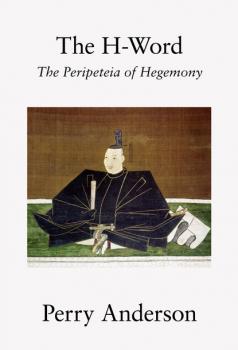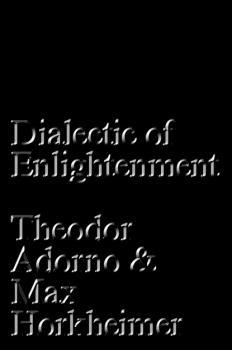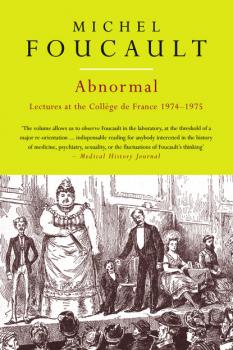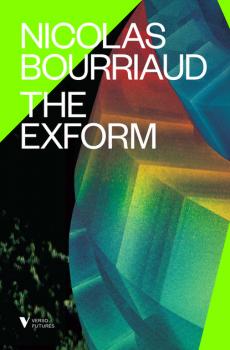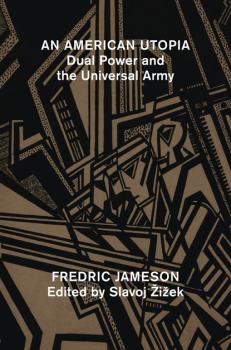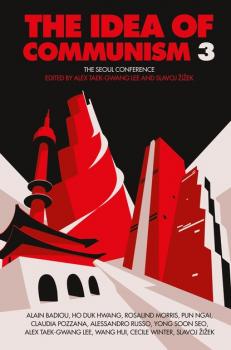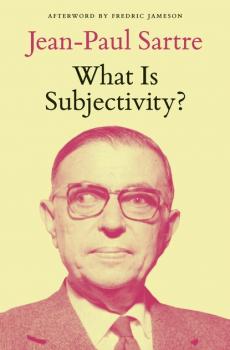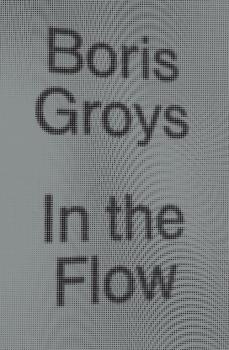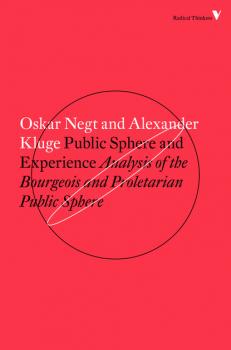ТОП просматриваемых книг сайта:
Афоризмы и цитаты
Различные книги в жанре Афоризмы и цитаты, доступные для чтения и скачиванияАннотация
A fascinating history of the political theory of hegemony Few terms are so widely used in the literature of international relations and political science, with so little agreement about their exact meaning, as hegemony. In the first full historical study of its fortunes as a concept, Perry Anderson traces its emergence in Ancient Greece, its rediscovery during the upheavals of 1848–9 in Germany, and then its chequered career in revolutionary Russia, fascist Italy, Cold War America, Thatcherized Britain, post-colonial India, feudal Japan, Maoist China, through to the world of Merkel and May, Bush and Obama. The result is a surprising and fascinating expedition into global intellectual history, ending with a strong political statement about the present.
Аннотация
A classic of twentieth-century thought, charting how society devours itself through the very rationality that was meant to set it free Theodor Adorno and Max Horkheimer are the leading figures of the Frankfurt School and this book is their magnum opus. Dialectic of Enlightenment is one of the most celebrated works of modern social philosophy and continues to impress in its wide-ranging ambition. Writing just after World War II and reflecting on the bureaucracy and myths of National Socialism and the inanity of the dawn of consumerism, Adorno and Horkheimer addressed themselves to a question which went to the very heart of the modern age: ‘why mankind, instead of entering into a truly human condition, is sinking into a new kind of barbarism’. Modernity, far from redeeming the promises and hopes of the Enlightenment, had resulted in the stultification of mankind and administered society, characterised by simulation and candy-floss entertainment. Tracing humanity’s modern fall to the very rationality that was to be its liberation, the authors exposed the domination and violence that underpin the Enlightenment project.
Аннотация
This brilliant group biography asks who were the Frankfurt School and why they matter today In 1923, a group of young radical German thinkers and intellectuals came together to at Victoria Alle 7, Frankfurt, determined to explain the workings of the modern world. Among the most prominent members of what became the Frankfurt School were the philosophers Walter Benjamin, Theodor Adorno, Max Horkheimer, and Herbert Marcuse. Not only would they change the way we think, but also the subjects we deem worthy of intellectual investigation. Their lives, like their ideas, profoundly, sometimes tragically, reflected and shaped the shattering events of the twentieth century. Grand Hotel Abyss combines biography, philosophy, and storytelling to reveal how the Frankfurt thinkers gathered in hopes of understanding the politics of culture during the rise of fascism. Some of them, forced to escape the horrors of Nazi Germany, later found exile in the United States. Benjamin, with his last great work—the incomplete Arcades Project—in his suitcase, was arrested in Spain and committed suicide when threatened with deportation to Nazi-occupied France. On the other side of the Atlantic, Adorno failed in his bid to become a Hollywood screenwriter, denounced jazz, and even met Charlie Chaplin in Malibu. After the war, there was a resurgence of interest in the School. From the relative comfort of sun-drenched California, Herbert Marcuse wrote the classic One Dimensional Man, which influenced the 1960s counterculture and thinkers such as Angela Davis; while in a tragic coda, Adorno died from a heart attack following confrontations with student radicals in Berlin. By taking popular culture seriously as an object of study—whether it was film, music, ideas, or consumerism—the Frankfurt School elaborated upon the nature and crisis of our mass-produced, mechanised society. Grand Hotel Abyss shows how much these ideas still tell us about our age of social media and runaway consumption.
Аннотация
Michel Foucault remains the essential philosopher of the modern world Three decades after his death, Michel Foucault remains one of the towering intellectual figures of the last half-century. His works on sexuality, madness, the prison, and medicine are enduring classics. From 1971 until his death in 1984, Foucault gave public lectures at the famous Collège de France. These seminal events, attended by thousands, created the benchmarks for contemporary social enquiry. The lectures comprising Abnormal begin by examining the role of psychiatry in modern criminal justice, and its method of categorising individuals who “resemble their crime before they commit it.” Building on the themes of societal self-defence developed in earlier works, Foucault shows how defining “normality” became a prerogative of power in the nineteenth century, shaping the institutions—from the prisons to the family—meant to deal with “monstrosity,” whether sexual, physical, or spiritual. The Collège de France lectures add immeasurably to our appreciation and understanding of Foucault’s thought.
Аннотация
Author of the influential Relational Aesthetics examines the dynamics of ideology Nicolas Bourriaud is a leading theorist and art curator. Here he looks to the future of art as a place to tackle the excluded, the disposable, and waste—the exform. He argues that the great theoretical battles to understand the present will be fought in the realms of ideology, psychoanalysis and art and a “realist” theory and practice must begin by uncovering the mechanisms that create the distinctions between the productive and the unproductive, the assimilable and the inassimilable, and the includ-ed and the excluded. To do this we must go back to one of the greatest theorists of ideology, Althusser, and examine how ideology conditions political discourse in ways that normalize cultural, racial and economic practices of exclusion.
Аннотация
Controversial manifesto by acclaimed cultural theorist debated by leading writers Fredric Jameson’s pathbreaking essay “An American Utopia” radically questions standard leftist notions of what constitutes an emancipated society. Advocated here are—among other things—universal conscription, the full acknowledgment of envy and resentment as a fundamental challenge to any communist society, and the acceptance that the division between work and leisure cannot be overcome. To create a new world, we must first change the way we envision the world. Jameson’s text is ideally placed to trigger a debate on the alternatives to global capitalism. In addition to Jameson’s essay, the volume includes responses from philosophers and political and cultural analysts, as well as an epilogue from Jameson himself. Many will be appalled at what they will encounter in these pages—there will be blood! But perhaps one has to spill such (ideological) blood to give the Left a chance. With contributions by Jodi Dean, Saroj Giri, Agon Hamza, Kojin Karatani, Kim Stanley Robinson, Frank Ruda, and Kathi Weeks
Аннотация
An all-star cast of radical intellectuals discuss the continued importance of communist principles In 2009 Slavoj Žižek brought together an acclaimed group of intellectuals to discuss the continued relevance of communism. Unexpectedly the conference attracted an audience of over 1,000 people. The discussion has continued across the world and this book gathers responses from the conference in Seoul. It includes the interventions of regular contributors Alain Badiou and Slavoj Žižek, as well as work from across Asia, notably from Chinese scholar Wang Hui, offering regional perspectives on communism in an era of global economic crisis and political upheaval. With contributions by Alain Badiou, Wang Hui, Ho Duk Hwang, Rosalind C. Morris, Pun Ngai, Claudia Pozzana, Alessandra Russo, Yong Soon Seo, and Cécile Winter
Аннотация
Jean-Paul Sartre, at the height of his powers, debates with Italy’s leading intellectuals In 1961, the prolific French intellectual Jean-Paul Sartre was invited to give a talk at the Gramsci Institute in Rome. In attendance were some of Italy’s leading Marxist thinkers, such as Enzo Paci, Cesare Luporini, and Galvano Della Volpe, whose contributions to the long and remarkable discussion that followed are collected in this volume, along with the lecture itself. Sartre posed the question “What is subjectivity?” – a question of renewed importance today to contemporary debates concerning “the subject” in critical theory. This work includes a preface by Michel Kail and Raoul Kirchmayr and an afterword by Fredric Jameson, who makes a rousing case for the continued importance of Sartre’s philosophy.
Аннотация
The leading art theorist takes on art in the age of the Internet In the early twentieth century, art and its institutions came under critique from a new democratic and egalitarian spirit. The notion of works of art as sacred objects was decried and subsequently they would be understood merely as things. This meant an attack on realism, as well as on the traditional preservative mission of the museum. Acclaimed art theorist Boris Groys argues this led to the development of “direct realism”: an art that would not produce objects, but practices (from performance art to relational aesthetics) that would not survive. But for more than a century now, every advance in this direction has been quickly followed by new means of preserving art’s distinction. In this major new work, Groys charts the paradoxes produced by this tension, and explores art in the age of the thingless medium, the Internet. Groys claims that if the techniques of mechanical reproduction gave us objects without aura, digital production generates aura without objects, transforming all its materials into vanishing markers of the transitory present.
Аннотация
The “public sphere” is a key concept in political discourse, designating a space for political action. But is this a single authoritative and universal space in which various positions compete for recognition, or does it consist of multiple local spaces spread over diverse collectivities? In Kluge and Negt’s groundbreaking book they examine the material conditions of experience in an arena that had previously figured only as an abstract term: the media of mass and consumer culture. With a new, up-to-date introduction from Alexander Kluge.

